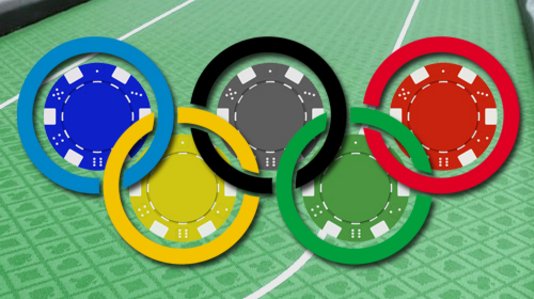While this may seem like an outlandish idea to many, the debate over whether poker should be considered a sport goes back to the poker boom years. However, the latest breakthrough is sure to tip the scales in favor of those who consider poker a sport. The Global Association of International Sports Federations (GAISF) accepted the specific format of match poker into the Olympic family and granted it observer status. Observer status means that the Olympic Association and world sports federations will monitor the competitive side of this game. Allocation to this category is the first step on the way to including sports among Olympic disciplines.
Match poker
If you are hearing the term match poker for the first time, it is a unique discipline in which you do not play against opponents at the table, but against players who experience the same situations as you. Same cards, same position, and same board - in such scenarios, you and your opponents are scored solely on your moves, eliminating the influence of luck and showing only your skill.
Now it has to be decided if this activity really requires skill and training. Poker fans will probably agree at least that, like other more "traditional" sports, poker requires talent, persistence and strategy, especially in a tournament format. As in tennis or golf (which was added to the Olympic sports only in 2016), the best players meet at the most prestigious tournaments in an attempt to win valuable titles. The special format of match poker has made this game one of the most remarkable "mental gymnastics", according to its supporters. It may sound unbelievable, but according to the Sporting News portal, we can expect poker at the Olympics as early as 2028.
History
The idea of introducing poker to the Olympic disciplines is far from new. The well-known Full Tilt Poker company had a promotional website when it was founded in 2004 and gave away "USA Poker Team" promotional items with the Full Tilt logo. In order not to be alone in this, a few years later a similar campaign was organized by the British gaming company CircusCasino.com. Their campaign hit the internet around 2008, when the British Advertising Standards Authority allowed the promotion of poker as a sport in September. Shortly thereafter, Circus Casino announced that they were seeking to include poker as an exhibition sport at the 2012 Summer Olympics in London.

According to their plan, poker was then to acquire the full status of an Olympic discipline in 2016 at the Games, which were eventually held in Rio, Brazil. Company representative Peter Nolan said at the time that poker is "a globally popular game that transcends gender and age and is the fastest growing sport in the world," qualifying it for an Olympic title. The Olympic Congress, which decided on the inclusion of new sports in the program of the 2012 Olympic Games, took place in October 2009 in Copenhagen, Denmark. Poker failed, and the International Olympic Committee eventually added freestyle skiing, women's boxing and mixed tennis doubles to the program that year.
This decision may have been a disappointment for the promoters, but the next shift was not long in coming. On April 29, 2009, the International Federation of Match Poker (IFMP) was founded in Lausanne, Switzerland. The IFMP focuses on the worldwide promotion of match poker, which, as we mentioned above, has the potential to become an Olympic sport. It was on her initiative that in 2010, the International Mental Sports Association (IMSA) included poker among games of skill. The IMSA organization is also recognized by the International Olympic Committee, and thus poker essentially qualified for inclusion in the Games.

In the continuation of this article, I will look together at the current situation and at the points that play for the inclusion of poker among the Olympic disciplines. What do you think, is poker an Olympic sport and would it be a big step forward for the industry as a whole?
Source: PokerNewsDaily, BeatTheFish, Insider, Sportingnews, Wiki



